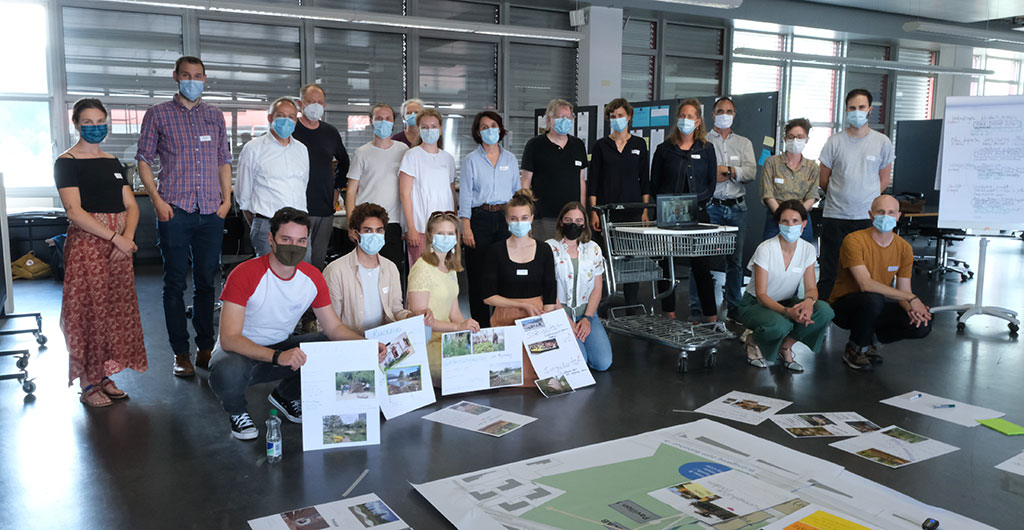At the bar camp in June 2021, 23 students, lecturers, management staff and employees jointly developed scenarios for designing the outdoor spaces of the future Horw campus in Switzerland.
The Lucerne University of Teacher Education is planning new university buildings in Horw on Lake Lucerne, where teachers, architects, etc. will study and spend part of their lives.
To ensure that pedagogical, didactic and lifeworld-oriented ideas are coordinated with architectural planning and actually find their way into the new building, the participation workshop on the topic of “outdoor spaces” was idurchführt.
Participation – especially of students – is an objective that is implemented within the project LEA – Learning Environment Applications in Switzerland. and is part of the university-wide participation concept (PDF) of the PH Luzern.
It is a dare
Inspired by the hint “It’s a gamble” from Cornelia Dinsleder, the project leader, all participants got involved in an open development process together. In a first step, photos, graphics, information, texts and thoughts that had been created during the students’ preparatory work were discussed, supplemented and commented on in a kind of exhibition. This introduction stimulated fundamental considerations and laid the basis for the more concrete further work.
À la Carte
In a second step, playing cards were developed. This methodical approach was developed by the Dutch school construction and education consultant Teun van Wijk, who was online. Using A3 collages, participants visualized needs and ideas with keywords, photos and additional comments. Fundamental areas of tension became clear, such as interaction and retreat, outside and inside, work and leisure, but also the indication that for all the awareness of ecology and biodiversity, other justified interests such as a powerful IT connection must not be forgotten, even in the outdoor space.

From the perspective of a drinking bottle
In the third and final step, the 23 participants developed four scenarios on an enlarged map of the future Horw campus using playing cards they had created themselves. For example, a “discussion arena” was suggested, where students periodically raise and collectively discuss current issues of interest through short presentations.
In another scenario, participants went through a student’s daily life, described from morning to evening from the perspective of a water bottle.
The alternation between work and rest phases made it clear that there must be sufficient places for this on the future campus. This also includes an attractively designed café: it should be open to the neighborhood population, but also allow meetings of other students and at the same time enable secluded preparation for the next seminar.
Trees, gardens, oases of peace, the protection of natural habitats, biodiversity, but also accessibility to the lake were other images that could be experienced through descriptions, narratives and visualizations in the scenarios.
Open for all
The fact that the University of Education is to become a meeting place was the common thread that became visible in the different scenarios. This applies to the interaction between the two universities, for students, for teachers, employees and also for the universities on the Horw campus in interaction with their neighborhood. Even though the actual new building will not be completed until around the year 2030, clear indications and guidelines for the outdoor spaces have already been developed in this bar camp.
The goal of this participation process is to secure these results. This is also ensured by the fact that Monika Kloth, member of the internal project team Campus Horw of the PH Luzern, was part of this process.
